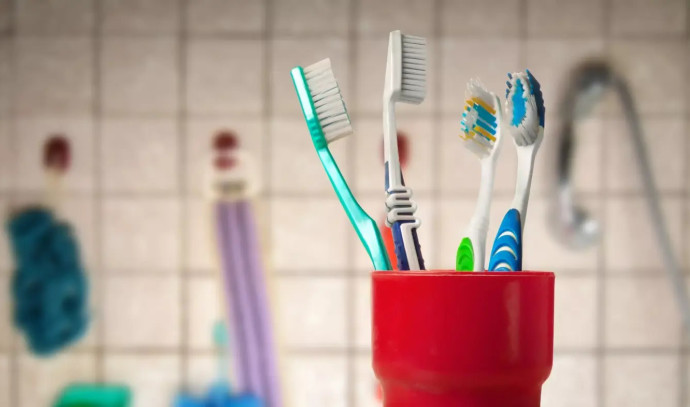Changing your toothbrush every few months is a good start, but it’s not sufficient. Even if your toothbrush isn’t that old, it can accumulate mold and bacteria, warns Dr. Ellie Phillips, a dentist in Austin, Texas.
“People are often aware of the health risks associated with mold and take measures to combat it in their homes, but they tend to forget one crucial place – their toothbrush,” says Phillips in a viral TikTok video with over a million views.
The culprit for mold growth on toothbrush bristles is the moisture in your bathroom, she explains.
Despite the convenience, she advises against brushing your teeth in the shower, as the steam can foster bacterial growth. Furthermore, using your electric toothbrush under a strong stream of water is not recommended.
So, what’s the solution?
Phillips recommends having two toothbrushes in rotation.
Storing your toothbrush near the toilet is also problematic, as experts have warned about potential exposure to bacteria during flushing. They recommend closing the toilet lid or keeping your toothbrush elsewhere.
While you can’t sterilize your toothbrush head by boiling it, Phillips suggests a simple alternative: Let your toothbrush air dry completely for 24 hours between uses. No need to cut back on brushing your teeth to achieve this – just use one toothbrush in the evening and another in the morning, allowing each 24 hours to dry before reuse, as Dr. Phillips recommends.
For those who prefer using a single toothbrush, the American Dental Association recommends replacing standard toothbrushes every three to six months. Some experts also recommend soaking the bristles in antibacterial mouthwash for 30 seconds, either in water with dissolved denture cleaning tablets or in a glass of water with two teaspoons of baking soda.




